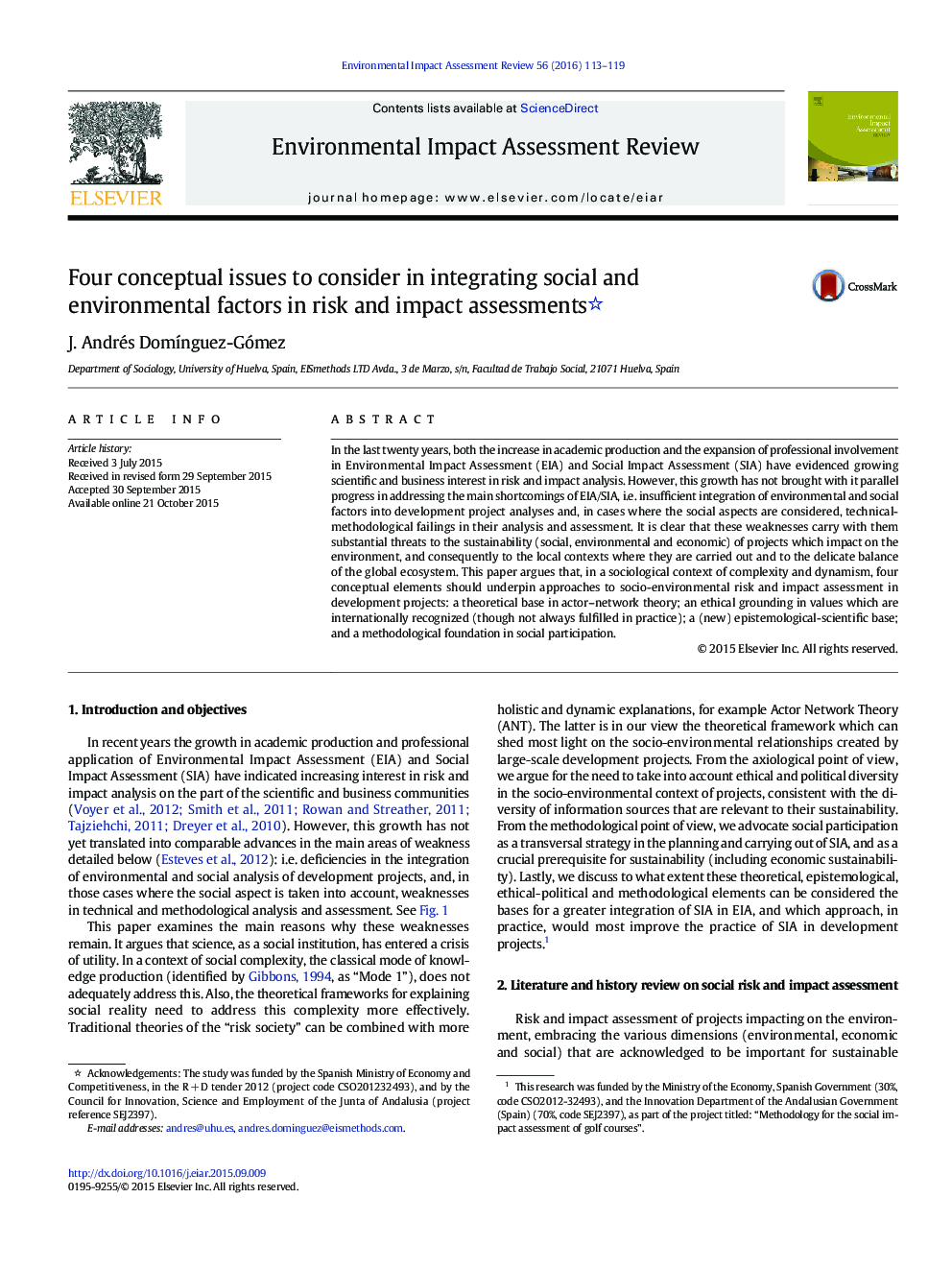| Article ID | Journal | Published Year | Pages | File Type |
|---|---|---|---|---|
| 1052679 | Environmental Impact Assessment Review | 2016 | 7 Pages |
•A theoretical foundation in actor–network theory•An ethical grounding in values which are internationally recognized, but rarely carried through into practice•A (new) epistemological-scientific base•A methodological foundation in social participation
In the last twenty years, both the increase in academic production and the expansion of professional involvement in Environmental Impact Assessment (EIA) and Social Impact Assessment (SIA) have evidenced growing scientific and business interest in risk and impact analysis. However, this growth has not brought with it parallel progress in addressing the main shortcomings of EIA/SIA, i.e. insufficient integration of environmental and social factors into development project analyses and, in cases where the social aspects are considered, technical-methodological failings in their analysis and assessment. It is clear that these weaknesses carry with them substantial threats to the sustainability (social, environmental and economic) of projects which impact on the environment, and consequently to the local contexts where they are carried out and to the delicate balance of the global ecosystem. This paper argues that, in a sociological context of complexity and dynamism, four conceptual elements should underpin approaches to socio-environmental risk and impact assessment in development projects: a theoretical base in actor–network theory; an ethical grounding in values which are internationally recognized (though not always fulfilled in practice); a (new) epistemological-scientific base; and a methodological foundation in social participation.
